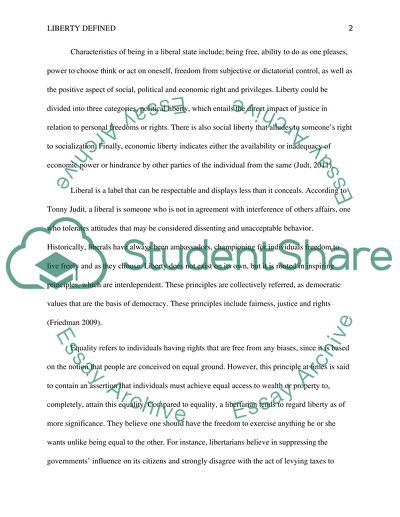Cite this document
(“Liberty Essay Example | Topics and Well Written Essays - 1000 words”, n.d.)
Retrieved from https://studentshare.org/history/1434965-liberty-defined
Retrieved from https://studentshare.org/history/1434965-liberty-defined
(Liberty Essay Example | Topics and Well Written Essays - 1000 Words)
https://studentshare.org/history/1434965-liberty-defined.
https://studentshare.org/history/1434965-liberty-defined.
“Liberty Essay Example | Topics and Well Written Essays - 1000 Words”, n.d. https://studentshare.org/history/1434965-liberty-defined.


